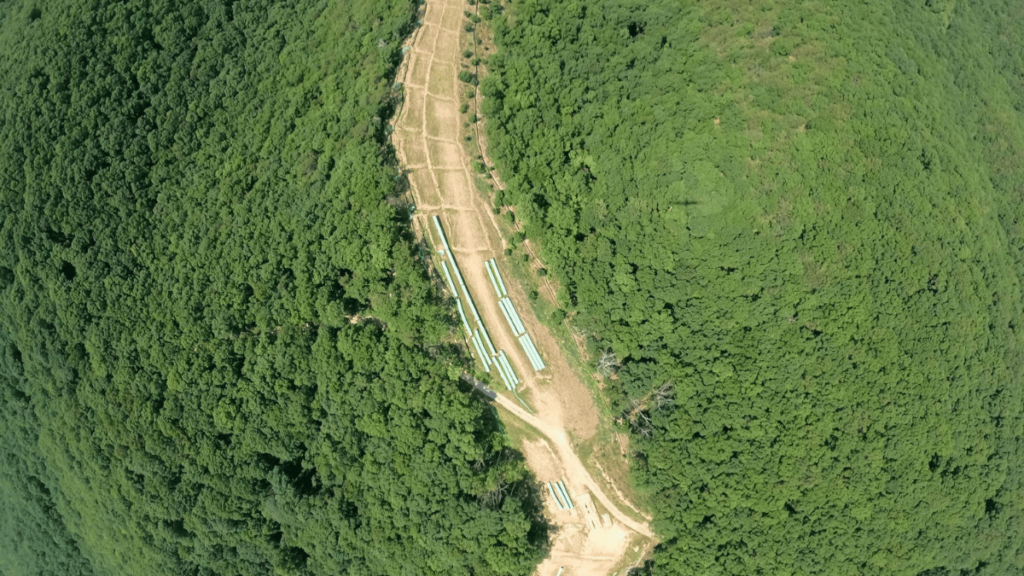The long-stalled Mountain Valley Pipeline is likely to move toward completion within weeks of passage of a bill in Congress.
Late Wednesday, the U.S. House of Representatives overwhelmingly passed a bill to raise the nation’s borrowing limit.
The bill includes a requirement that the Mountain Valley Pipeline receive its final Corps of Engineers permit within 21 days.
The bill must first pass the U.S. Senate. And even though both of Virginia’s U.S. senators have vowed to block the pipeline’s inclusion, Sen. Shelley Moore Capito of West Virginia said their effort is unlikely to succeed.
“With the 21-day Corps of Engineers requirement,” she said in a briefing with reporters Thursday, “I think you’ll see people beginning to work on this by the first of July.”
The natural gas pipeline has been a top priority of both West Virginia’s U.S. senators.
Environmental and community groups oppose it because of impacts to water quality and the production of natural gas through hydraulic fracturing. They’ve had some success blocking it in federal court, but the bill cuts out the Fourth U.S. Circuit Court of Appeals, which has delivered consistent rulings against the project.
“Including the Mountain Valley Pipeline in the debt-limit deal is a dangerous precedent and potentially disastrous development for people, wildlife, and water along the project’s route,” said Mustafa Santiago Ali, executive vice president of the National Wildlife Federation.
In the House, Rep. Carol Miller, R-W.Va., voted for the bill that includes it. Rep. Alex Mooney, R-W.Va., voted no.
“From completing the Mountain Valley Pipeline to cutting government spending,” Miller said in a statement late Wednesday, “voting ‘yes’ on this bill solidifies a conservative win for the American people.”
Mooney, who is challenging Gov. Jim Justice to be the Republican U.S. Senate nominee next year, saw it differently.
“This bill does not have comprehensive permitting reform to support America’s energy production,” he said in a statement Wednesday. “West Virginians are counting on me, a proven conservative, to hold our government accountable.”























